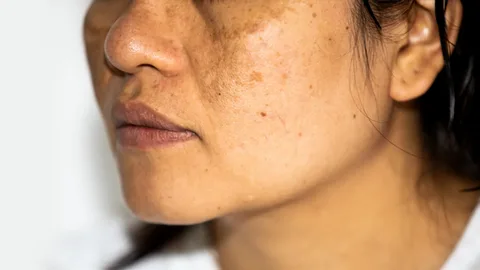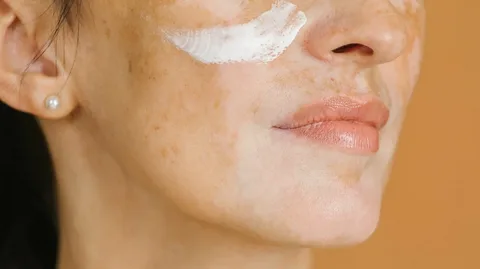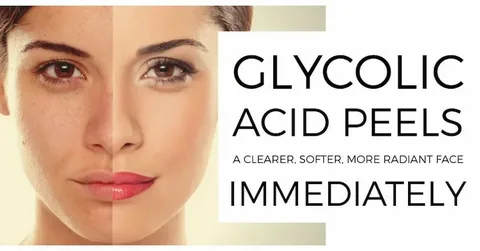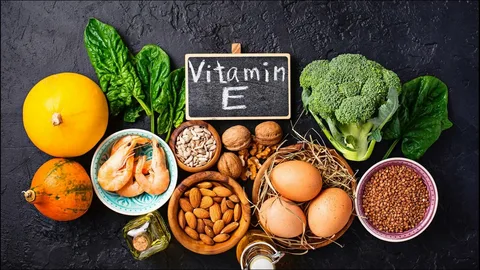Hyperpigmentation and dark spots can be frustrating to deal with, especially when they seem to appear out of nowhere.
Whether they result from acne, sun exposure, or hormonal changes, these skin concerns can affect your confidence and make you feel self conscious about your complexion.
The good news is that you don’t have to accept dark spots as a permanent part of your skin. With the right treatments, you can fade these spots and restore your skin’s natural glow.
In this guide, we’ll explore everything you need to know about hyperpigmentation and dark spots, including the causes, effective treatments, natural remedies, prevention tips, and when to see a dermatologist.
By the end, you’ll have the knowledge and tools you need to tackle these skin issues head on.
What Are Hyperpigmentation and Dark Spots?
Understanding Hyperpigmentation
Hyperpigmentation occurs when the skin produces excess melanin, the pigment responsible for giving your skin its color.
The result is darkened areas on the skin that are commonly known as dark spots. These spots can vary in size and shade, and they often appear on the face, hands, and other sun exposed areas.
Types of Hyperpigmentation
- Sunspots (Solar Lentigines): These are caused by prolonged sun exposure.
- Post Inflammatory Hyperpigmentation (PIH): These dark spots appear after an injury or inflammation, like acne breakouts.
- Melasma: This form of hyperpigmentation is typically hormonal and is more common in women, especially during pregnancy or when taking birth control.
Why Do Dark Spots Appear?
Several factors can contribute to the development of dark spots and hyperpigmentation:
- Sun Exposure: The most common cause of dark spots, UV rays stimulate the production of melanin in the skin, leading to sunspots.
- Acne Scarring: After a pimple heals, the skin can leave behind dark spots, especially if the blemish was picked or squeezed.
- Hormonal Changes: Hormonal fluctuations during pregnancy or with the use of birth control can lead to melasma, which causes dark, patchy skin, particularly on the face.
- Skin Inflammation: Any injury or irritation to the skin, whether it’s from a burn, rash, or wound, can trigger an inflammatory response that leaves behind dark spots.
How to Get Rid of Hyperpigmentation and Dark Spots
Topical Treatments
One of the most effective ways to treat dark spots is through topical treatments. These treatments aim to reduce melanin production, exfoliate the skin, and promote skin healing.
Vitamin C
Vitamin C is a powerful antioxidant that can help brighten the skin and fade dark spots over time. It works by inhibiting the enzyme responsible for melanin production, thus preventing further pigmentation.
Additionally, it promotes collagen production, which can help improve skin texture.
How to Use:
- Apply a Vitamin C serum every morning to clean skin.
- Look for serums with stabilized Vitamin C, such as ascorbic acid, for maximum effectiveness.
Retinoids (Vitamin A Derivatives)
Retinoids are derivatives of Vitamin A that speed up cell turnover. By increasing the rate at which your skin sheds dead cells, retinoids help fade dark spots and reveal fresher, more even toned skin.
They also help with fine lines and wrinkles, making them a great option for overall skin health.
How to Use:
- Start with a lower concentration of retinoid (like retinol) to avoid irritation.
- Apply at night, as retinoids can make the skin more sensitive to sunlight.
Niacinamide
Niacinamide, also known as Vitamin B3, is a gentle yet effective ingredient for fading dark spots. It works by inhibiting melanin production, thus lightening hyperpigmented areas and evening out skin tone.
How to Use:
- Niacinamide is typically found in serums and creams.
- Apply twice daily after cleansing and before moisturizing.
Alpha Hydroxy Acids (AHAs)
AHAs, such as glycolic and lactic acid, are chemical exfoliants that gently remove dead skin cells. This process helps reveal brighter, more even skin underneath and promotes fading of dark spots. AHAs also encourage collagen production, which improves skin texture.
How to Use:
- Choose products that contain glycolic or lactic acid and apply them to your face 2–3 times a week at night.
- Always follow up with sunscreen in the morning.
Hydroquinone
Hydroquinone is a powerful skin lightening agent that reduces the production of melanin. It’s particularly effective for stubborn dark spots but should be used with caution, as it can cause irritation in some people.
How to Use:
- Topical hydroquinone should be used under the guidance of a dermatologist.
- Available in over the counter and prescription strengths.
Azelaic Acid
Azelaic acid is a gentle alternative to other skin lightening agents. It reduces pigmentation and helps with acne scars without causing irritation, making it ideal for sensitive skin.
How to Use:
- Apply an azelaic acid gel or cream once or twice daily.
Chemical Peels and Exfoliation
Chemical peels and exfoliation treatments can be highly effective for treating dark spots by removing damaged layers of skin and stimulating the growth of new, healthy skin.
Glycolic Acid Peels
Glycolic acid is one of the most popular AHAs used in chemical peels. It helps to slough off dead skin cells, allowing new, brighter skin to emerge. Glycolic acid is especially effective for sunspots and uneven pigmentation.
How to Use:
- Chemical peel treatments are best performed by a dermatologist or licensed professional.
- At home glycolic acid products should have a lower concentration (10-20%).
Microneedling
Microneedling involves tiny needles that create micro injuries in the skin to promote collagen production. This treatment is effective for reducing the appearance of dark spots and acne scars.
How to Use:
- Microneedling is typically done by a professional, although at home rollers are available.
- For the best results, aim for a series of treatments spaced a few weeks apart.
Natural Remedies and Home Solutions
If you prefer more natural treatments, there are several options that may help lighten dark spots.
Lemon Juice and Honey
Lemon juice is a natural bleaching agent, while honey has antibacterial properties that help promote healing. Together, they can reduce the appearance of dark spots.
How to Use:
- Apply fresh lemon juice and honey to the dark spots for 10-15 minutes, then rinse off with lukewarm water.
- Do this 2-3 times a week.
Aloe Vera
Aloe vera is known for its soothing and healing properties. It can help lighten dark spots, especially those caused by inflammation or acne scars.
How to Use:
- Apply fresh aloe vera gel directly to the affected areas.
- Leave on for 20 minutes before rinsing off.
Turmeric
Turmeric has been used for centuries for its brightening and anti inflammatory properties. It can help lighten skin and reduce pigmentation caused by acne or sun exposure.
How to Use:
- Mix turmeric powder with yogurt or honey and apply it as a mask for 15-20 minutes.
- Rinse thoroughly.
Green Tea Extract
Rich in antioxidants, green tea extract can help reduce pigmentation and protect against future skin damage from UV rays.
How to Use:
- Apply green tea extract directly to the skin or drink it regularly to reap its benefits.
Preventing Future Dark Spots
Sunscreen: The Most Important Step
Prevention is key when it comes to hyperpigmentation. The most important step in preventing dark spots is daily sunscreen. Sun exposure can exacerbate existing dark spots and create new ones.
**Key Tips for Sunscreen:
- Choose a broad spectrum sunscreen with at least SPF 30.
- Apply it every morning, even on cloudy days.
- Reapply every 2 hours when outdoors, and more often if sweating or swimming.
Consistent Skincare Routine
A good skincare routine can help prevent dark spots from forming. Avoid harsh products that can irritate the skin, and always treat blemishes gently.
**Key Tips for Skincare:
- Moisturize regularly to keep the skin hydrated and healthy.
- Avoid picking or squeezing pimples, as this can lead to scarring and hyperpigmentation and dark spots.
Healthy Lifestyle Choices
Your diet and lifestyle can also play a role in preventing hyperpigmentation. Eating a diet rich in vitamins C, E, and antioxidants can help promote healthy skin and reduce pigmentation.
**Key Tips for Lifestyle:
- Drink plenty of water to keep your skin hydrated.
- Include more fruits and vegetables in your diet.
- Manage stress, as it can contribute to hormonal imbalances that trigger hyperpigmentation.
When to See a Dermatologist
If you’ve tried over the counter treatments and haven’t seen results, or if your dark spots are persistent and worsening, it may be time to consult a dermatologist.
They can help with more aggressive treatments like laser therapy, and prescribe stronger medications like hydroquinone.
**Key Signs You Need a Dermatologist:
- Dark spots that don’t respond to home treatments.
- Severe cases of melasma or post inflammatory hyperpigmentation.
- Dark spots that are painful, bleeding, or have changed in size.
Conclusion
Getting rid of hyperpigmentation and dark spots takes time, patience, and consistency. By following a proper skincare routine, using effective treatments, and protecting your skin from further damage, you can gradually lighten these spots and achieve an even complexion.
Remember, sunscreen is your best defense against dark spots, and combining it with treatments like Vitamin C, retinoids, and niacinamide will give you the best chance of success.
If at home remedies aren’t working, don’t hesitate to consult a dermatologist for professional advice and treatments.
FAQs
What causes dark spots on the skin?
Dark spots can be caused by sun exposure, acne scars, hormonal changes, and skin inflammation.
How long does it take to get rid of hyperpigmentation?
It can take several weeks to months to see improvement, depending on the severity of the dark spots and the treatment used.
Can hyperpigmentation be prevented?
Yes, sunscreen is essential to prevent hyperpigmentation caused by UV rays.
Is Vitamin C effective for dark spots?
Yes, Vitamin C is a powerful ingredient that helps lighten dark spots and even out skin tone.





